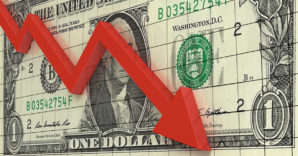 The Great Recession hit America hard from December of 2007 to the middle of 2009, millions of US residents lost their livelihoods and homes. It was the worst economic downturn since the 1930s and the Great Depression, and it took almost a decade for the labor market to fully recover.
The Great Recession hit America hard from December of 2007 to the middle of 2009, millions of US residents lost their livelihoods and homes. It was the worst economic downturn since the 1930s and the Great Depression, and it took almost a decade for the labor market to fully recover.
There are very few people still alive who remember the Great Depression, so the recession in 2008 is the only true recession that most Americans have experienced. Sure, we hit a downturn when COVID restrictions locked everything down in 2020, but that was not a true recession.
Because most people have only experienced the recession of 2008, all of the predictions of a “major” recession in 2022 have most of the population freaking out – but recessions are a perfectly normal part of business cycles. Many economists agree that a worst-case scenario is not likely in 2022.
Harvard economist Jason Furman suggests that even if a recession happens, the chances of it being a worst-case, all-out financial collapse like 2008’s recession are slim.
Stephen, Miran, a former senior adviser at the US Department of the Treasury, told Forune that recessions “are an unavoidable fact of economic life. We were fortunate in the previous cycles to have gone a pretty long time without a recession. But actually, you know, recessions happening has been the norm throughout most of economic history.”
He believes that it is more likely that the economy will experience a “garden variety recession,” not a massive financial crisis like the Great Recession of 2008.
Not all recessions are the same
Recessions are not always the same – some are much worse than others. Every recession will result in widespread job loss and financial downturn, the degree of hardship and length of the recession can vary greatly.
In fact, many economists are predicting a much milder recession than what we experienced in 2008. Kelly Bouchillion, a senior partner at Sound View Wealth Advisors, said that “Corporate America has never had more cash on its balance sheets. Bank surveys show that the consumer is not overladen with consumer debt. And there’s a lot of cash in people’s checking accounts. So there seems to be a fair amount of spending power.”
He explained that there are two main types of recessions. The more common type of recession happens when the economy “overheats” and inflation rises. This causes the Federal Reserve to increase interest rates and try to “crush demand to try to crush inflation.” This type of recession has happened several times since World War II.
The other, more dangerous type of recession is called a balance-sheet recession. In this more extreme recession, a “debt bubble” occurs, which is when consumers spend a significant percentage of their income to pay off debt instead of spending to bolster economic activity. This type of recession results in a much slower recovery period and massive numbers of unemployed Americans.
According to Miran, it takes about 10 months from the “low” in the unemployment rate to recover to pre-recession levels in a typical recession. The Great Recession, it took almost 32 months to recover.
Since 2008, several laws and protective measures have been implemented to regulate the financial sector and protect American consumers. Bouchillion believes that these measures, along with much stronger household budgets, will help us avoid another 2008-style financial collapse.
Recession risk factors
Even though many financial experts believe that we’re unlikely to experience an extreme recession, there are still several risk factors that should be considered.
First of all, the percentage of consumers’ disposable income that is saved each month fell to an average of 4.4% in April of 2022, which is the lowest level since the crash in 2008. According to research from the St. Louis Federal Reserve, this “personal savings rate” averaged 11.8% for sixty years (from 1959 to 2019).
Secondly, inflation is higher than it has been in forty years. The Federal Reserve has committed to raising interest rates until there is clear evidence that inflation is under control.
Finally, investment banks are sounding the alarm about the risk of recession – and a recession’s potential impact on the stock market and unemployment levels.
While many experts disagree on the likelihood of a recession, most agree that the risk of a recession has risen. As in any economic downturn, job losses and rising debt are likely to happen – which means bankruptcy cases are likely to increase. If you’re struggling with debt or have recently lost your job, Rubin & Associates can help. Call us at 214-760-7777 for a free debt consultation. Our experienced bankruptcy attorneys will walk you through your options and help you get on the path back to financial freedom!
